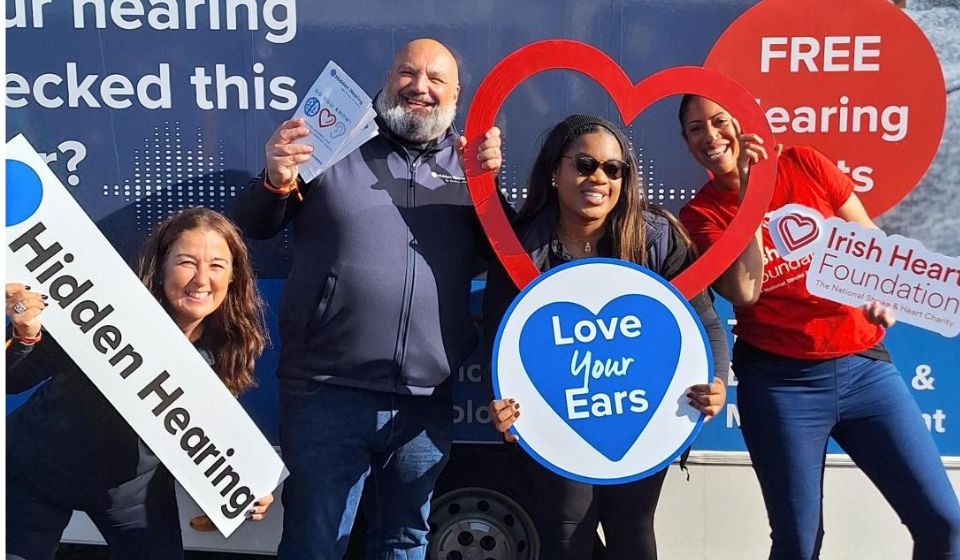Did you know that the cold weather can affect your ears and potentially your hearing?
Here are 6 ways to practice self-care for your ears this season:
1.Bundle up!
It’s important to keep your body warm in the wintertime to help your immune system fight off potential colds and viruses, so don’t forget your coat, scarves, and gloves if it’s cold out.
Ears are more prone to infection if you have an upper-respiratory cold or flu. An ear infection occurs when the eustachian tube in the middle ear is blocked by fluid and/or inflammation, which allows a viral or bacterial infection to develop in the middle ear. Though children are more likely to develop ear infections for several different reasons, such as having smaller eustachian tubes and under-developed immune systems, adults can also experience them.
Safeguard your body this season, so that you can safeguard your ears!
2. Use ear protection
While bundling up your body, don’t forget to bundle up your ears with a warm hat, headband, or earmuffs. Since ears are mostly made of cartilage and barely any fat, they hardly have any insulation. This is why ears, along with noses, get cold more quickly than other parts of your body.
Frequent exposure to the cold without ear protection may increase your risk for hearing loss. This is because your body may react to this exposure by increasing bone growth in the ear canal in order to “block out” the cold. This additional growth is called exostosis. It’s common amongst skiers, snowboarders, and surfers who are exposed to cold temperatures and/or cold water. Even if it doesn’t seem that cold, it’s actually advised to wear hats or earmuffs at temperatures of around 15°C (59°F) and below. While this may not seem very cold, this is the temperature in which your blood vessels start to constrict in order to consolidate warmth, making your ears more susceptible to the cold weather.
Along with keeping your ears warm during the chilly winter season, remember to shield them from loud noises as per usual. If it snows and you use a snowblower/snow thrower, be mindful. Exposure to sounds around 70 decibels over a period of time can start to damage our hearing, and snowblowers can generate sounds over 90 decibels.
3. Look after your immune system
As you already know, colds and upper respiratory infections can lead to (painful) ear infections, so it’s important to keep your immune system healthy to help prevent the chance of developing one.
Supplementing with nutrients that support your immune system such as high-quality vitamin D, C, zinc, and probiotics can be great additions to your diet, especially during cold and flu season, as well as upping your fruit and vegetable consumption, fiber, hydration, and making sure exercise and rest part of your routine. Be mindful of reducing your stress as well, since chronic stress can be an immune suppressant.
Speak with your doctor, healthcare professional, and/or nutrition expert to see if you’re getting what you need to keep your immune system running top-notch.
4. Keep them dry
Winter can mean more rain and snow in parts of the world.
Excessive moisture can enter the ear and create the perfect environment for bacteria to flourish, and thus, can lead to ear infections. Make sure you gently clean just around the opening of the ear canal once a day with a cloth, especially after showering or bathing (and winter swimming, if you’re into that). Avoid using cotton swabs/buds as these often do more harm than good.
If you’ve noticeably gotten water in your ear making it feel clogged, you can tilt your head to the side while gently pulling your earlobe down, or lay on your side on a pillow covered with a towel to help it drain. You can also use a hairdryer on low heat and speed to help dry out the canal. If you would like more guidance, contact your doctor or audiologist.
5. Show your hearing aids some extra love
Cold weather doesn’t only have the potential to affect your ears, but also your hearing aids. Our hearing aids are built to withstand varying temperatures, but it’s still a good call to take extra care of them during this season. Despite them being resilient in many ways, extreme temperatures can still put your battery life at risk.
Additionally, condensation can form easily in the winter months as we go from being outside in the cold to being in the warm indoors. This excess moisture can potentially damage your hearing aids.
Unhappy hearing aids = unhappy ears!
Curious to learn about how to care for your hearing aids in the winter? Here are a few simple things you can do.
6. Talk with a hearing care expert
Want to learn more?
If you would like to get to know your ears better, discuss your concerns, and stay on top of any hearing changes, book a consultation with one of our experts at our local hearing care clinic.
We offer a complimentary hearing test and risk-free hearing aid trial if you want to see which hearing aids could be right for you.



/untitled-design-(37)/silent-trisco.png?rev=e7826e859402423bbc683eb197dc9124)